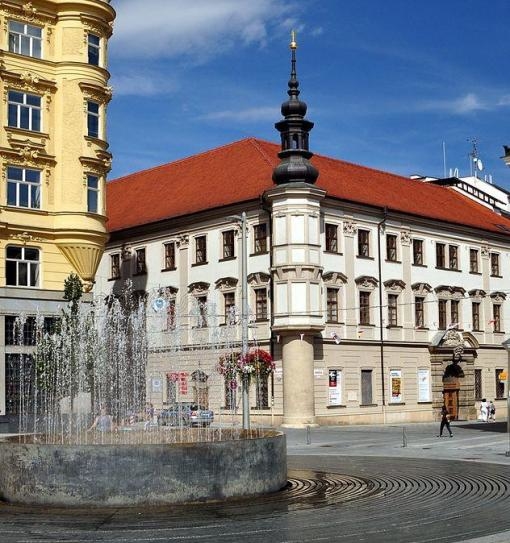For a few days, the chapel of the Palace of Noble Ladies in Brno will host an exhibition of the autographed work of the 4th movement of Ludwig van Beethoven’s String Quartet in B flat major, Op. 130. The autograph has so far been part of the collections of the Department of Music History of the Moravian Museum. The exhibition was created on the occasion of the return of the autograph to the Petschek family.
Ludwig van Beethoven’s string quartets, composed at the end of the composer’s life, also known as “late”, are among the masterpieces of world music literature, which far exceeded the musical thinking of the time of their composition. Among them is this six-movement quartet, composed between 1825 and 1826 and commissioned by Prince Nikolai Golitsyn and premiered in March 1826 in the hall of the Musikverein in Vienna. The exhibition runs only from 30 November to 4 December 2022 and can be found in the chapel of the Palace of Noble Ladies on Kobližná Street in Brno.
It is not rare that autographed works of the most famous works of the greatest composers have a troubled fate. Some have not survived at all, others have only parts left, each of which has a different fate (to name but a few, the manuscripts of Mozart’s operas). Nearly three hundred pages of the autographed work of Beethoven’s String Quartet in B flat major are now scattered in five countries. Manuscripts of individual movements are held by libraries, archives and museums in Poland, the USA, France, the Czech Republic, and Germany. However, the collecting story of the manuscript of the 4th movement of the quartet is also extremely interesting and dramatic in this context.
Almost two hundred years ago, Ludwig van Beethoven gave it as a gift to his friend and secretary Karl Holz. For the next hundred years, the autographed work remained the property of two successive Viennese owners. After the First World War it was acquired by the Petschek family, at that time the richest industrialists and financiers in Central Europe. With the rise of Nazism and the occupation of Czechoslovakia, however, the Jewish family flees the country and the attempt to export Beethoven’s autograph is unsuccessful. It is in the possession of the German authorities, the Gestapo is interested in it, and only through the providence and courage of some Czechs was it possible to keep the manuscript in the Moravian Museum in Brno.
After the Second World War, the owner František Petschek tried to retrieve the most precious parts of his art collection from the American exile. However, he was unable to get Beethoven’s autographed work across the Iron Curtain, and it is only now in the hands of his family, under the law on the mitigation of certain property injustices caused by the Holocaust.
For five days in late November and early December, visitors will have a literally unique opportunity to see this extraordinary relic, the signed manuscript of Ludwig van Beethoven, and to learn more about its fascinating collecting story. Along with the autographed work of the 4th movement of the String Quartet in B flat major, Op. 130 (alla Danza tedesca), several contemporary copies of other Beethoven compositions from the collections of the Department of Music History of the Moravian Museum will be on display.












No comment added yet..